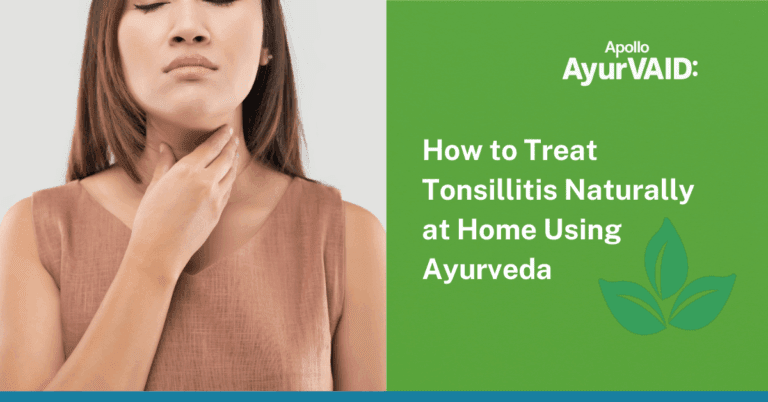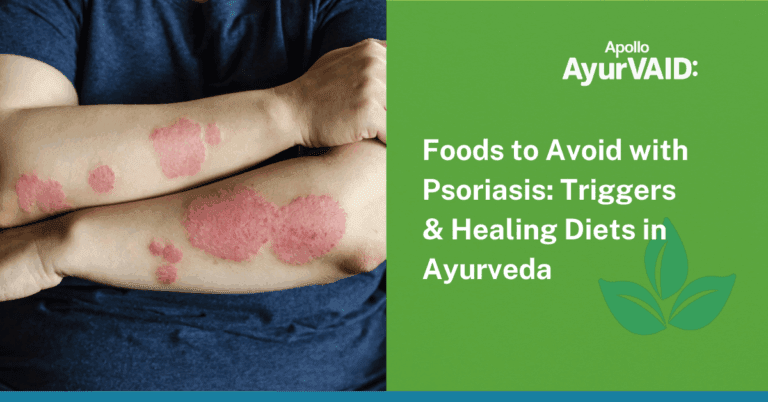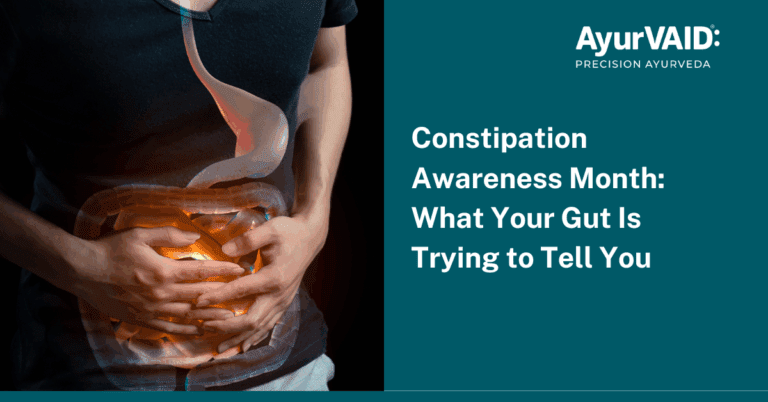Introduction
Parents arrive in the clinic with a single, tender wish: to give their child the best possible chance to flourish. Questions often start with What is ADHD? and move quickly to worries about behaviour, learning and social belonging. In modern medicine, attention-deficit hyperactivity disorder is described by its core features; in Ayurveda, we add a developmental, constitutional and environmental lens — and, most importantly, practical early steps that support healthy brain development and reduce risk. This blog outlines those early, gentle steps you can begin at home and in partnership with your care team.

What is ADHD and how Ayurveda Sees It
ADHD refers to a pattern of inattention, hyperactivity or impulsivity that affects function and development. Parents often notice ADHD symptoms such as difficulty sitting still, poor attention at play or school, or impulsive choices — the clinical pathway that leads to diagnosis.
Signs and symptoms of ADHD
The following are the most common ADHD symptoms observed:
- Easily distracted and has trouble maintaining focus on studies or tasks
- Difficulty with following directions and getting work done
- Restlessness and can’t stay seated for very long
- Talks too much or interrupts frequently
- Acts on impulse without reflection or waiting their turn
- Irritability, anger outbursts, or mood swings that occur often
Ayurveda compares such behavioural and mental disturbances to Unmada – a state where Tridoṣha (Vata, Pitta, Kapha) become imbalanced and disturb the functioning of Manas (mind), Buddhi (intellect), Smriti (memory), and Indriyas (senses).
In many cases of ADHD, Vata dosha (which governs movement, impulses, nervous activity) and Pitta dosha (which governs sharpness, anger, heat) are predominantly aggravated. This leads to restlessness, disturbed sleep, irritability, aggression, poor concentration, and difficulty in studies.
Management of ADHD in Ayurveda
Ayurveda considers ADHD as Sadhya (manageable/curable) if treated early and properly with a combination of shodhana (purificatory therapies) and shamana (pacifying measures).
- Shodhana Chikitsa (Detox & purification)
- Snehana (oleation with medicated oils/ghee)
- Swedana (herbal steam/sudation)
- Vamana (therapeutic emesis, when indicated)
- Virechana (mild laxatives to balance Pitta)
- Vasti (medicated enema – considered Ardha Chikitsa, half of all treatments, especially for Vata disorders)
- Nasya (nasal administration of medicines to support brain functions)
These therapies calm Vata, clear channels (srotas), and improve the gut–brain connection.
- Shamana Chikitsa (Pacification & support)
- Medhya Rasayana (nootropic, brain-nourishing formulations) is used in ghrita (ghee) or churna (powder) form.
- Abhyanga (daily oil massage with medicated oils) helps calm hyperactivity and regulate sleep.
- Utsadana (herbal powder massage) and Nadi Sveda (steam with decoctions) are also supportive.
Why prevention matters
Not every child with restless behaviour will develop ADHD, and not all influences are modifiable. But early nurturing environments, stable daily routines, good maternal health, nutrition and reduced toxic exposures have measurable, positive effects on attention, behaviour and learning. Apollo AyurVAID’s approach is integrative: we combine developmental screening, family education, lifestyle-based prevention and early therapeutic steps when needed — always individualised.
Practical early steps to reduce risk
- Preconception and pregnancy — foundational care
- Prioritise maternal physical and mental health. Balanced sleep, gentle daily routines, stress support and targeted prenatal care lay the foundation.
- Avoid known toxins (smoking, alcohol, uncontrolled medications) and minimise high levels of environmental pollution and excessive caffeine.
- Gentle nourishment and adequate iron and omega-3s (under medical guidance) support fetal neurodevelopment.
- Birth and early infancy — steady rhythms build resilience
- Early breastfeeding when possible supports immune and neural development; skin-to-skin contact, responsive feeding and calm care promote secure attachment — a powerful protective factor.
- Keep wake-sleep and feeding routines consistent; Ayurveda’s emphasis on rhythm (dinacharya) stabilises Vata and supports neurological maturation.
- Infant massage (abhyanga) with warm, gentle strokes increases circulation, improves sleep and soothes the nervous system — simple, safe, and bonding.
- Nourishing and nootropic foods
- Emphasise fresh, warm, easily digestible foods that support agni (digestive fire) — this improves nutrient absorption and prevents metabolic irritability that can affect behaviour.
- Include natural sources of protein, iron, and healthy fats across childhood; avoid frequent processed sugars and highly refined foods, which may worsen fluctuations in attention and mood.
- Hydration, regular meal times and mindful eating (no screens during meals) stabilise appetite and mental equilibrium.
- Sleep hygiene
- Regularity of sleep-wake times and soothing pre-bed routines are crucial. Even small and regular sleep improvements significantly enhance attention and emotional regulation.
- Restrict stimulating screen use, particularly in the evening; instead, opt for reading, soothing storytelling, or relaxing breathing.
- Movement, play and sensory regulation
- Daily active play — running, climbing, kid-friendly yoga — helps to balance Vata and furnish needed sensory input for the brain.
- Activities that both engage rhythm and coordination (dancing, ball games, basic martial arts) enhance attention networks.
- For anxious children, offer regular sensory breaks and calm areas to recapture composure.
- Screen time and contemporary stimulants
- Excessive, unmonitored screen time during early childhood is linked to attention issues; establish specific age-related limits and prioritise interactive, high-quality content when using screens.
- Promote real-world investigation, hands-on play and social interaction as opposed to passive screen viewing.
- Attachment and emotional environment
- The most effective single intervention is warm, responsive caregiving to soothe the nervous system. Validate feelings, use calm correction, and teach emotion-naming.
- Parental stress deeply affects children’s regulation — supporting caregiver mental health is a prevention strategy for the child.
- Early learning supports and attention training
- Early language exposure, reading and turn-taking games from birth — these tiny habits accumulate attention and executive function.
- For toddlers, simple wait games, patterning, and following multi-step directions enhance attentional control.
- Not medicating unnecessarily; on-time professional assistance
Not all children need medication or referral to specialists. But if you see ongoing challenges, get evaluated — early ADHD diagnosis (when it exists) unlocks access to beneficial supports. Apollo AyurVAID encourages an integrative assessment that includes developmental paediatrics, neuropsychology and Ayurveda evaluation.
Practical parent toolkit
- Avoid Ati-Teekshna (too spicy), Amla (sour), and Katu (pungent) foods which aggravate Pitta.
- Encourage Madhura Rasa (naturally sweet foods like milk, ghee, dates) which nourish Ojas and calm the mind.
- Maintain regular routines (Dinacharya): fixed sleep and wake times, balanced play, calm study environment.
- Gentle practices like Yoga and Pranayama help stabilise Vata and improve attention.
When to Seek Assessment
To Conclude
Prevention is not about blaming the environment and other factors; it’s about empowerment. Small and consistent changes are more powerful and sustainable. Many children thrive when given predictable care, good sleep, nourishing food and supportive parents. If your child receives an ADHD diagnosis, it is a route to tailored support — and Ayurveda can sit alongside conventional care to improve daily functioning and resilience.






